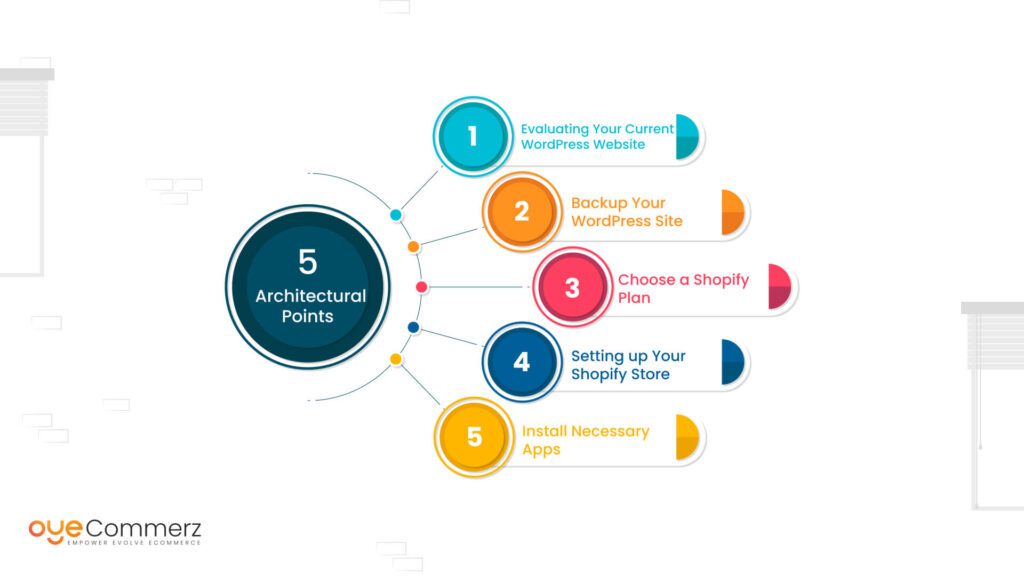In the constantly changing world of eCommerce, picking the right platform is essential for your company’s prosperity. If you’re presently using WordPress and considering a migration to Shopify, you’re not the only one. Many businesses are switching to take advantage of Shopify’s comprehensive tools, ease of use, and scalability. This guide will guide you on the journey of migrating from WP to this platform effortlessly, ensuring that you unlock your online retail potential.
Why Switch from WP to Shopify?
Before exploring the migration journey, it’s crucial to know why this shift can be beneficial for your digital storefront:
Accessible Tools: Shopify features an user-friendly interface that simplifies store handling, allowing for non-technical users.
Scalability: As your business develops, Shopify can handle increased visitors and sales without compromising efficiency.
All-in-One Solutions: Shopify includes built-in resources for SEO, analytics, payment management, and much more, reducing the requirement for several plugins.
Enhanced Security: With Shopify, you utilize strong security measures that secure confidential customer data.
Steps for a Smooth Migration
Migrating your online store from WP to Shopify requires key actions.
Here’s the way to ensure a successful transition:
Prepare Your Migration Plan
Start by mapping out your migration strategy. Decide on which aspects of your present site you wish to transfer, such as:
Inventory information
User details
Purchase logs
Articles
Pick the Best Migration Package
Considering your needs, opt for a migration service that fits your business. Migration experts delivers various options:
Basic Migration Package: Suitable for small stores with minimal products.
Mid-Tier Plan: Suitable for mid-range businesses with intermediate demands.
Advanced Plan: Excellent for big stores demanding extensive customization.
Secure Your Data
Before starting the migration, guarantee that you have a full backup of your WP site. This step is crucial in situations where anything goes wrong during the migration.
Extract Your Information from WordPress
Utilize extensions or custom scripts to extract essential data from your WP site:
Inventory
Customers
Transactions
Content pieces
Import Data into Shopify
After you have your information exported, employ Shopify’s migration apps or specialized apps to Shopify migration strategy upload your content into your Shopify store. Confirm that all data is properly structured and placed.
Customize Your Shopify Store
Following migrating content, customize your Shopify store’s layout to match with your style. Look into working with a developer if you need complex customization.
Establish Checkout Systems and Shipping Options
Configure transaction methods and delivery choices in Shopify to ensure a seamless checkout experience for customers.
Implement SEO Standards
To preserve your SEO performance during the change:
Use 301 link updates from existing URLs to updated ones.
Revise metadata.
Adjust images and content for SEO.
Test Your New Store
Before going live, thoroughly test your migrated site. Identify any discrepancies, checkout failures, or incomplete files.
Publish Your Site
Once everything is in place, it’s time Shopify order history migration to launch! Announce the update to your users and invite them to discover the updated capabilities of your Shopify store.
Post-Migration Guidance
Post releasing your updated store, regular assistance is key. Think about engaging professionals who can help with:
Technical support
Marketing strategies
Improvement strategies
Conclusion
Migrating from WordPress to Shopify can be a transformative move for your online retail. By adopting this guide and leveraging experts like those offered by industry leaders, you can achieve a smooth transition that enhances your online presence. Adapt to the opportunity and realize the advantages of Shopify today!
